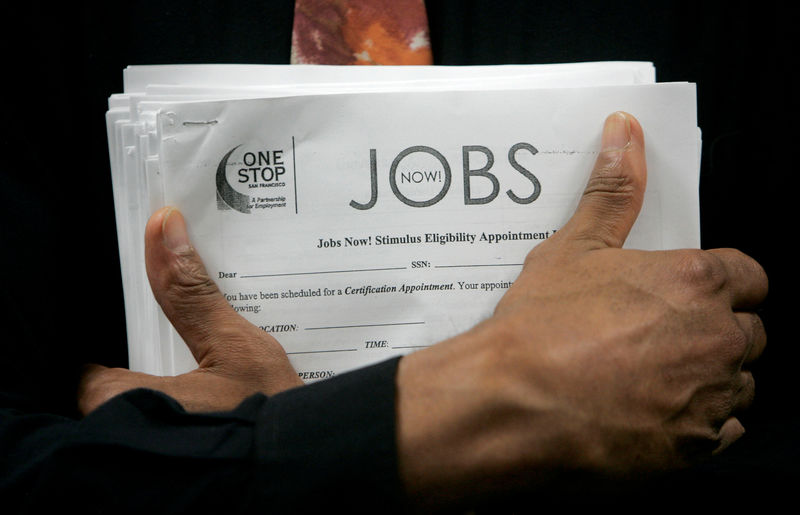WASHINGTON, (Reuters) - The number of Americans filing for unemployment benefits fell for a second straight week last week, suggesting no impact yet on the labor market from ongoing trade tensions between the United States and its trading partners.
Initial claims for state unemployment benefits slipped 2,000 to a seasonally adjusted 212,000 for the week ended Aug. 11, the Labor Department said on Thursday. Data for the prior week was revised to show 1,000 more applications received than previously reported.
The claims data is being closely watched for signs of layoffs as a result of the Trump administration's protectionist trade policy, which has led to an escalating trade war with China and tit-for-tat import tariffs with other trading partners, including the European Union, Canada and Mexico.
While there have been reports of some companies either laying off workers or planning to as a result of the import duties, that is not yet evident in the claims data.
Economists say a robust economy is helping the labor market weather the trade storm. Companies are also reporting difficulties finding qualified workers, with the labor market viewed as being near or at full employment.
The economy grew at a 4.1 percent annualized rate in the second quarter, the fastest in nearly four years and almost double the 2.2 percent pace logged in the first three months of the year.
Claims dropped to 208,000 during the week ended July 14, which was the lowest reading since December 1969. Economists polled by Reuters had forecast claims rising to 215,000 in the latest week.
The Labor Department said no states were estimated last week. The four-week moving average of initial claims, considered a better measure of labor market trends as it irons out week-to-week volatility, rose 1,000 last week to 215,500.

The claims report also showed the number of people receiving benefits after an initial week of aid dropped 39,000 to 1.72 million for the week ended Aug. 4. The four-week moving average of the so-called continuing claims fell 8,000 to 1.74 million.